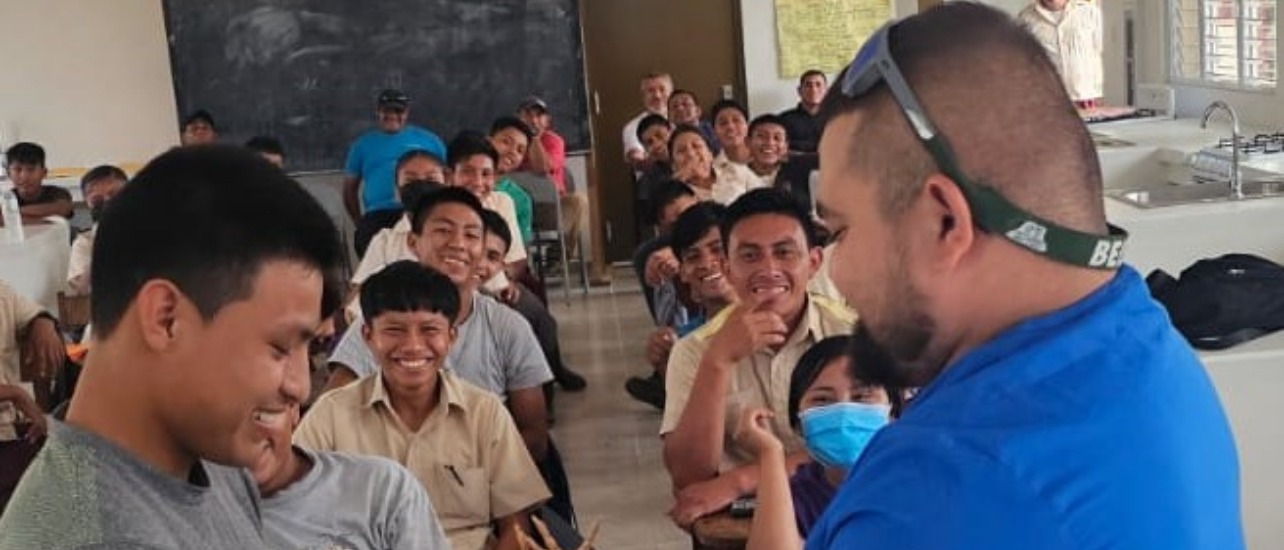Over 100 stakeholders participate in a workshop on Newcastle disease immunization in Southern Belize
Organized by FAO and Belize’s Ministry of Agriculture, the training underscored critical immunization methods, biosecurity, and livelihood support, focusing on rural and Indigenous producers. This initiative forms part of Belize’s agricultural resilience strategy, aligning with the national policy to enhance agricultural diversity, digitalization, and sustainable growth across rural communities

©FAO
In a significant step toward enhancing Belize’s backyard poultry production sector, over 100 stakeholders—including students and male and female backyard poultry producers from Belize’s two southernmost districts—recently participated in a training workshop focused on Newcastle Disease immunization, utilizing a One Health approach. The workshop was conducted under the Belize Agriculture Sector Policy with a focus on Seed, Back Yard Poultry, Marketing, and Indigenous Territories, implemented by the Food and Agriculture Organization of the United Nations (FAO); Ministry of Agriculture, Food Security and Enterprise; Agriculture Health Authority; Ministry of Human Development, Families and Indigenous Peoples Affairs. The training emphasized seed production, backyard poultry, marketing, and support for Indigenous territories.
The workshop aimed to build capacity among rural backyard poultry producers by focusing on biosecurity measures essential to preventing the spread of Newcastle Disease, with a particular focus on immunization. Delivered by the Belize Agriculture Health Authority (BAHA) in collaboration with local One Health partner agencies and supported by the FAO’s technical cooperation program in Belize, the training sought to instill vital practices that will help protect local poultry populations from disease outbreaks.
This initiative aligns with Belize’s broader agricultural strategy, prioritizing rural farmers’ and Indigenous peoples’ livelihoods by promoting policy enhancements and governance improvements. The strategy supports sector diversification and bolsters regional trade, making agriculture a resilient force in Belize’s economy. Following the pandemic, the government shifted its focus to agricultural development and sectoral diversification, particularly digital agriculture, export growth to Latin America, and resilience to future disruptions.
Belize’s draft National Agriculture and Food Policy is undergoing realignment with these new priorities under the “Plan Belize” initiative, incorporating experiences and lessons learned during the pandemic. The renewed strategy emphasizes export-led growth, digitization, climate adaptability, product diversification, and employment generation.
Backyard poultry rearing, a primary activity for rural and urban farmers during the pandemic, has increased bird movement across Belize. This rise in poultry movement increases the risk of disease spread, particularly for virulent Newcastle Disease (vND) and Avian Influenza (AI), which are highly contagious.
These diseases can spread rapidly through infected birds, contaminated people or objects, and infected poultry products, threatening both backyard and commercial poultry sectors. The Government has prioritized disease control in poultry alongside other key areas, including providing quality planting materials, promoting export markets, and protecting Indigenous and traditional farmer rights.
The development and implementation of monitoring and control measures in backyard poultry production aim to prevent disease outbreaks and protect Belize’s food security, rural livelihoods, and commercial poultry industry.
